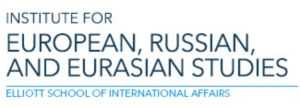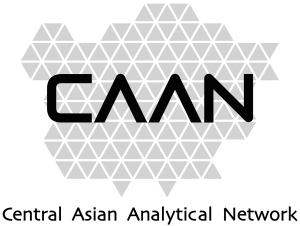Main photo: President Shavkat Mirziyoev with bloggers, August 2019
Media in Uzbekistan represents an interesting object of study.
After President Shavkat Mirziyoyev came to power, the media, which under the previous regime was laid up in official narratives and strict censorship, is now given the opportunity to provide more critical coverage and to develop in a freer and more pluralistic environment.
Nikita Makarenko, a blogger and a journalist based in Tashkent, talks about some of the implications of this “opening” almost four years ago.
How would you describe the current media market in Uzbekistan? What are the major media outlets? What does the main audience read: state-funded media, private outlets or bloggers?
The present media market in Uzbekistan reminds me of a very active “bazaar” with traders, customers and growing advertising budgets. Under former president Karimov, Uzbek media was an empty space, almost sterile. Anyone who took a risk to say something different was prosecuted. The profession of journalist was not considered prestigious, and it was not highly paid. In the past three years, the situation has slowly, but surely, turned 180 degrees. The old media has revived and became more active. Businessmen see the market’s potential and set up new TV channels along with online media. The media market begins to get more money. Now it is an overcrowded, noisy and scandalous small bazaar.
Interview with

Nikita Makarenko
Nikita Makarenko is a journalist from Tashkent, Uzbekistan. He is a graduate of the faculty of journalism at the National University of Uzbekistan. He was a columnist and a special reporter for online media «Gazeta.uz». In 2020 he joined «Uzreport TV» to produce his own investigative TV show. In 2017 Nikita has received a prestigious CEC Artlsink fellowship and spend 6 weeks as a scholar resident at the Oberlin College (Ohio, USA) and in spring 2019, taught his own class on propaganda at the Oberlin College (Ohio, USA) as a visiting lecturer. From 2012 to 2015 Nikita led Central Asian arts’n’culture citizen-journalism project NewEurasia.net as the Managing Editor. In 2016, Nikita started his career as a playwright with his play «Airport» staged in the Ilkhom Theater. His new play «Tomorrow» was premiered in Tashkent in February 2020.

The media market begins to get more money. Now it is an overcrowded, noisy and scandalous small bazaar.
The present media market in Uzbekistan reminds me of a very active “bazaar” with traders, customers and growing advertising budgets. Under former president Karimov, Uzbek media was an empty space, almost sterile. Anyone who took a risk to say something different was prosecuted. The profession of journalist was not considered prestigious, and it was not highly paid. In the past three years, the situation has slowly, but surely, turned 180 degrees. The old media has revived and became more active. Businessmen see the market’s potential and set up new TV channels along with online media. The media market begins to get more money. Now it is an overcrowded, noisy and scandalous small bazaar.
Finding professional journalists remains a problem. In the previous years there was no substantial training for journalists. There was no place to gain experience; there was no one to lead by example; and the most promising journalists left the country. The lack of creative and professional journalists greatly delays further improvement of the market. True, in the 2020 academic year, several universities announced the opening of new departments of journalism – which may help to fill the gap. I personally would be happy to teach, but none of the local universities have invited me to join the department of journalism thus far.
As far as I remember, no solid studies of the media audience in Uzbekistan have been conducted. But recently, Internews published the results of an interesting survey. It reveals that in Uzbekistan, the vast majority of respondents of all ages prefer television. The Internet still trails behind. Only 57.7% of respondents use the Internet at all. But the most positive developments that happened with the media under Mirziyoyev took place only online. The first critical publications and investigations that came along with the “wind of freedom” were all published in the online media. It is there that we have heated and boiling discussions. Television remains a fairly empty resource subject to both state censorship and self-censorship. To some extent, only one or two private TV channels venture to raise some sensitive issues which have already been discussed among the Internet-readers.
A study by the “Public opinion” Institute, commissioned by Internews (2019) states that TV (in purple) is the main source of information in Uzbekistan across all age groups, from 14-18 to 60-65. Internet is marked blue, relatives and friends – yellow and social networks – light blue. The infographic also includes data for Tajikistan and Kazakhstan
Bloggers and the rise of their popularity are also a characteristic feature of modern Uzbekistan. They have a high credibility among readers, as they are often the first ones to raise sensitive issues, like corruption, crime, and abuse of power. Often, they report news earlier than online media resources. After all, even online media outlets have to “synchronize watches” against their own self-censorship. Some hot issues are never published in the media, but only by bloggers. However, bloggers manipulate their readers too by tending to give out unverified and contradictory information or by publishing paid materials without indicating that they are paid, and by engaging in political attacks.
President Mirziyoyev has urged the media to be more critical. In what kind of criticism are the media engaged in, who do they criticize and what are the main topics?
Online media is critical on a very wide range of topics; but this cannot be said about their colleagues in TV, radio, and print media. Criticism of public officials with ministerial rank and below, heads of regions and cities, deputies and senators is quite routine and painless for the authors. Criticism of the higher echelon of power is less common. This level still involves a certain level of self-censorship. Otherwise, there are no special obstacles. To the best of their abilities and courage, Uzbek media scrutinizes businessmen, state corporations, as well as domestic and foreign policy. The heads of regions and cities (khokims) are targeted more than others. The issues of illegal demolitions and real estate, poor infrastructure, freedom of speech and expression, the registration system, law enforcement agencies, and others have been fairly often reported in critical publications before the pandemic.
A study by the “Public opinion” Institute, commissioned by Internews (2019) asked their respondents if they think the media provides false information. A majority of respondents (purple) thinks this is extremely rare. About 11,3% (yellow and light blue) thinks that media provides false information often. The second graph shows what people do to fact-check the information. Most respondents would do nothing (blue), or search for fact in Internet (yellow) and ask friends (light blue).
As you mentioned already, Telegram and individual bloggers are very popular in Uzbekistan. Could you describe them briefly?
Uzbek Telegram is probably one of the most developed communities in this app messenger. It is unique, and this community presents an ideal research subject. According to App Annie, Uzbekistan is ranked second by the number of users on Telegram globally. We have a unique environment here: provocative bloggers, troll factories funded by state structures, nationalists, extremists, law enforcement agencies, and drug dealers get along on one messaging app. Telegram reminds me of a wild saloon where everyone can find fun to their liking. People post about everything on there. One can watch funny, locally shot videos or follow a smart channel about urban architecture. Fact checking is not an established law here; as a rule, Telegram is known for a huge number of fake accounts and is filled with rumors. The genre of fake documents or fake screenshots is very popular there. Many of these are created purposefully, with very specific goals. I cannot say that the audience is really prepared to check information on its own. This is why fake campaigns often succeed.

What can you tell about the Uzbek language media? How do they differ from the Russian language media in terms of the issues raised and the target audience?
The Uzbek language media is absolutely much more popular, and they probably have a hundred times larger audience than the Russian language media. However, these two types of media do not duplicate each other and exist in a strange symbiosis. Both are in demand by the audience and advertisers. One cannot say that the Russian language media earn significantly less because of their smaller audience. Russian and Uzbek language audiences are equally valuable despite the difference in numbers. Russian is most widely spoken in Tashkent, the most economically active region of Uzbekistan. This is the reason why advertisers are interested in the Russian-speaking audience.
The Uzbek language media tend to publish more translations from the international news agencies and foreign media materials. This segment takes up the biggest part of the agenda and leaves smaller space for local news. There is almost no international news in the Russian language media of Uzbekistan. Local news is dominant here by a ratio of about 90% to 10%. A reason for this that the Russian-speaking readers have no shortage of sources for international news.
There is a slight difference in the topics raised in local media, however. The Russian language media is not keeping up with regional coverage (life in the remote regions) due to the lack of their audience and journalists there. Mainly, they focus on the news from Tashkent. I think that critical issues regarding the protection of the environment, freedom of expression, rights of women and the disabled, and a general human rights agenda are more often raised in the Russian language media. The Uzbek language media writes about religion, national identity, language and history. Such stories are extremely rare in the Russian language media.
Is there any growth in business or economic journalism? How dependent are they on advertisers or other sources of funding?
Over the past three years, I witnessed a rapid growth in the development of online media. However, the media is not clearly segmented in Uzbekistan. In fact, all online media write about everything. There are several interesting projects in business media, but they are still far from being truly popular. The launching of Forbes Uzbekistan magazine has not become an attention-grabbing event yet. Kommersant.uz, the oldest business publication, was closed during the pandemic.
Private media outlets are very dependent on advertisers; 100% of private online media with employees which regularly publish from 5 to 10 materials a day are dependent on advertisers. They do not have any other sources of funding (except for the media, which are part of holdings or companies and which have general income). State funding is thin and the government is still suspicious towards foreign grants which support local media. Therefore, today advertising is the only chance for survival in Uzbekistan.
What do you think the Uzbek media lack (if not to speak about TV, but print and online media)? How much does the audience in Uzbekistan continue to rely on external (foreign) publications in mass media?
I believe that the Uzbek media is still confined within the chains of self-censorship. I understand that breaking these chains is not easy. It’s probably dangerous. But the barriers are still there, and not all issues can be covered. For example, I quit the job in the media outlet where I had worked for three years when my material was not published. I had to publish it in another media outlet. And there are not enough good journalists. This is the reason why media outlets are not able to develop. I think that the audience in Uzbekistan fully relies on local publications to get local information. The Russian-speaking audience continues to consume international information provided by foreign media publications. There is no competition here.
Is there a market for new independent media?
New media outlets with various levels of independence are being set up quite regularly. There are no barriers to register a media platform – this process takes place in a matter of days. Registration of an OOO [LLC] (limited liability company) can be done within 15 minutes. There are no barriers for this. “How to survive?” is another question. Not everyone succeeds in it, as the market is already very much overloaded with media.
I am looking forward to the emergence of a media outlet that will focus not on news, but on reports, investigations, and high-quality longreads. Besides, it should be commercially successful and popular. So far, there are no courageous entrepreneurs, who are ready to invest in such a difficult and risky project in terms of making a profit. There is not enough of cool video content, YouTube is developing very slowly. In this case, I am also looking forward to the projects similar to the ones created in Russia.
Are there any media conglomerates, which are either controlled by the government or independent private groups of the elite?
The National TV and Radio Company which is broadcasting a big number of popular TV and radio channels is the largest mass media conglomerate in the country. It is controlled by the government. The company UzReport, which owns such TV channels as: UzReport TV, UzReport World, Futbol TV, and the popular website UzReport News and other resources belong to the private conglomerates. Sometimes, individual entrepreneurs and politicians try to create their own conglomerates, but such attempts are not always successful. For example, after functioning for less than a month, Togri.uz, an ambitious and multi-budgeted media outlet associated by some of the observers with Jahongir Artykhodzhayev, Mayor (khokim) of Tashkent, and his business empire called Akfa-Artel, which was closed in September 2019. In 2018, the same thing happened with Turon 24, an equally ambitious project. In general, most popular Uzbek and Russian language media outlets in Uzbekistan belong to different, independent owners. This is a very good situation, because much more space is left for criticism and different points of view. However, it is clear that strategic-minded businessmen and politicians will eventually begin to get separate resources under their control. So far, no such processes have been seen in Uzbekistan.














